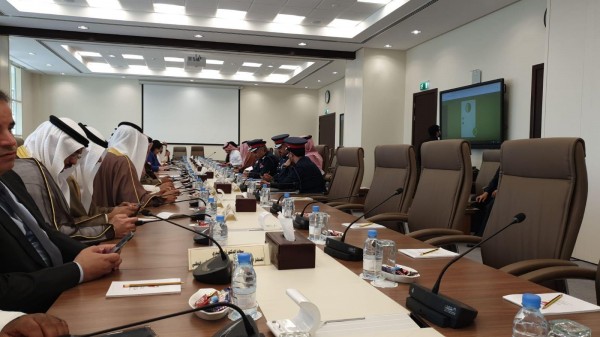2019 Roundup: Two Years after being Passed, Bahrain Timidly Implements Alternative Penalty Law

2020-01-21 - 11:38 am
Bahrain Mirror (2019 Roundup): On July 17, 2017, King Hamad ratified the alternative penalty law which allows the public prosecution or a judge to replace pretrial detention with commuted punishments.
Alternative penalties include: Community service, house arrest, prohibition of access to a particular place or places, commitment to non-exposure or contact with certain persons or entities, electronic surveillance, attending rehabilitation and training programs and repairing the damage caused by the crime.
The law seemed to be made at the time to divert the attention of human rights organizations and reduce the criticism Bahrain faces, just as was the case of the Prisoners' Commission, the Ombudsman and the Special Investigation Unit.
Indeed, judges began implementing the alternative penalty law, but political prisoners were an exception, and the replacement of sentences included very few misdemeanor cases and did not include serious crimes.
King Hamad bin Isa Al Khalifa surprised everyone when he called for expanding the implementation of the provisions on April 18, 2019. Two days later the Minister of Interior Abdullah Al Khalifa said that the ministry is working on expanding the implementation of the law, especially electronic surveillance. On April 28, 2019, the Interior Minister said during a meeting with a number of MPs that the ministry intends to implement the Alternative Penalty Law to include 451 prisoners as a first stage, explaining that those who will be included in the law are prisoners sentenced to prison terms ranging from 2 to 10 years.
However, the Director-General of Reformation and Rehabilitation said in a statement (May 5, 2019) that action is still underway to allow the effective implementation of the provisions of the Alternative Penalty Law and provide rehabilitation programs that commensurate with the personal circumstances of the convicts.
The alternative penal code was met with many doubts by activists, after excluding prisoners of political cases. The execution judge refused (May 6, 2019) a request by lawyer of prominent activist Nabeel Rajab to implement the Alternative Penalty Law in his case. A few weeks later, on May 23, 2019, the authorities released Abdulrahman Khalifa Al-Dhahrani (son of former Speaker of the House of Representatives Khalifa Al-Dhahrani and brother of Judge Ali Al-Dhahrani), who was sentenced to 3 years in prison for drug trafficking and possession of weapons.
Similarly, the execution judge refused (July 20, 2019) to implement this law in the case of leader of Amal Society, Khalil Al-Halwachi, noting that Al-Halwachi had already served half of his 10-year prison term.
The Public Prosecution announced (July 22, 2019) that the number of convicts who benefitted from alternative punishment since its implementation in May had reached 586. Public Prosecutor Ali Al-Buainain said (September 16, 2019) that 756 convicts had so far benefited from the law on alternative punishments, noting that the law wasn't applied to political prisoners who amount to about 4,000, according to human rights organizations.
The judiciary continued to reject the release of political prisoners within the framework of the alternative penalty law. On September 17, 2019, the appeals court refused to release prominent human rights defender Nabeel Rajab. The execution judge also refused to implement the alternative penalty law on sisters Amal, Iman and Fatima Ali Abdullah.
The authorities' stubbornness in refusing to enforce the law on political prisoners has led to criticism from rights groups and activists on Twitter; however, on November 8, 2019, the prosecution announced the release of 75 prisoners under the alternative penalty law, which included for the first time political prisoners.
Human rights activist Ibtisam Al-Saegh posted (November 22, 2019) a photo of her with released prisoner Mojtaba Al-Abbar and said that he was the first case among political prisoners to receive alternative punishment.
Following Bahrain's first victory in its history in the Gulf Cup in Doha, Public Prosecutor Ali Al-Bouainain announced (December 9, 2019) the release of 80 prisoners under the alternative penalty law. Al-Bouainain also said (December 15, 2019) that the prosecution received directives to release 530 inmates who served half of their prison terms, adding that the move follows directives to expand the enforcement of the law on alternative penalties. He noted that the Prosecution studied the inmates' situations and decided to release them.
This time, the alternative penalty law was implemented on dozens of prisoners, including female inmates who were all released (except for Hajar Mansour, mother-in-law of human rights activist Ahmed Al-Wadaei). Meanwhile, this move was welcomed by the Bahrain Center for Human Rights as well as Nationalist Democratic and Al-Menbar societies.
It is still unclear whether the authorities in fact want to release a large number of political prisoners. What happened in late 2019 was welcomed by opposition parties, yet this welcome was accompanied by great caution and suspicion.
- 2020-02-052019 Roundup: Year of Bullying by Naturalized Citizens
- 2020-01-312019 Roundup: At Least 500 Bahrainis Arrested in Raid Campaigns (BFHR)
- 2020-01-302019 Roundup: Ali Al-Shuwaikh Extradition Case Finds Echo in The Netherlands
- 2020-01-272019 Roundup: Press Freedoms in Bahrain under Gov't Fire, 86 Violations, 21 Verdicts, 16 Summonses & 9 Arrests
- 2020-01-232019 Roundup: Gov’t Obtains One Billion, 100 Million from Citizens’ Pockets